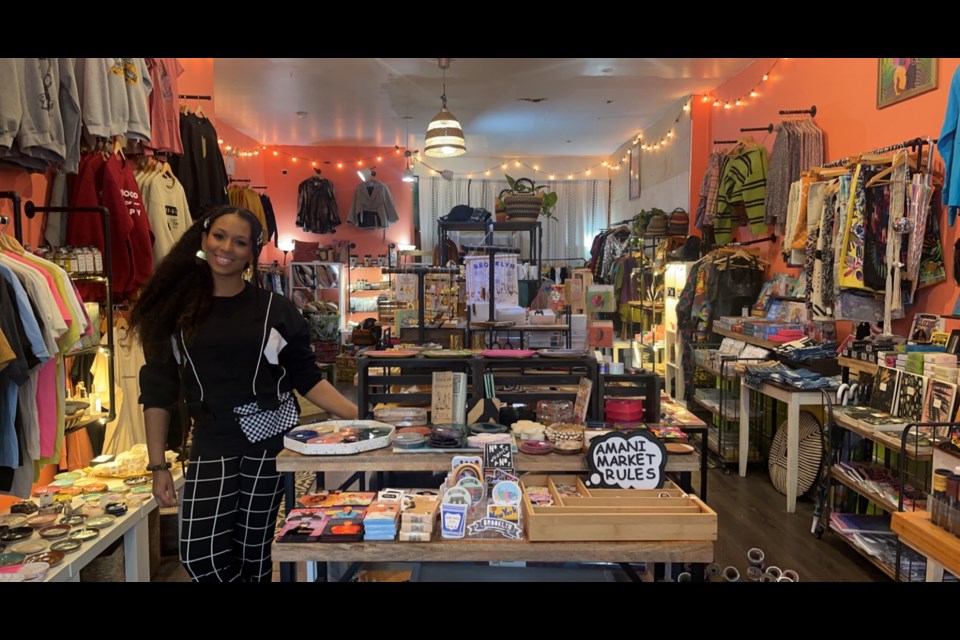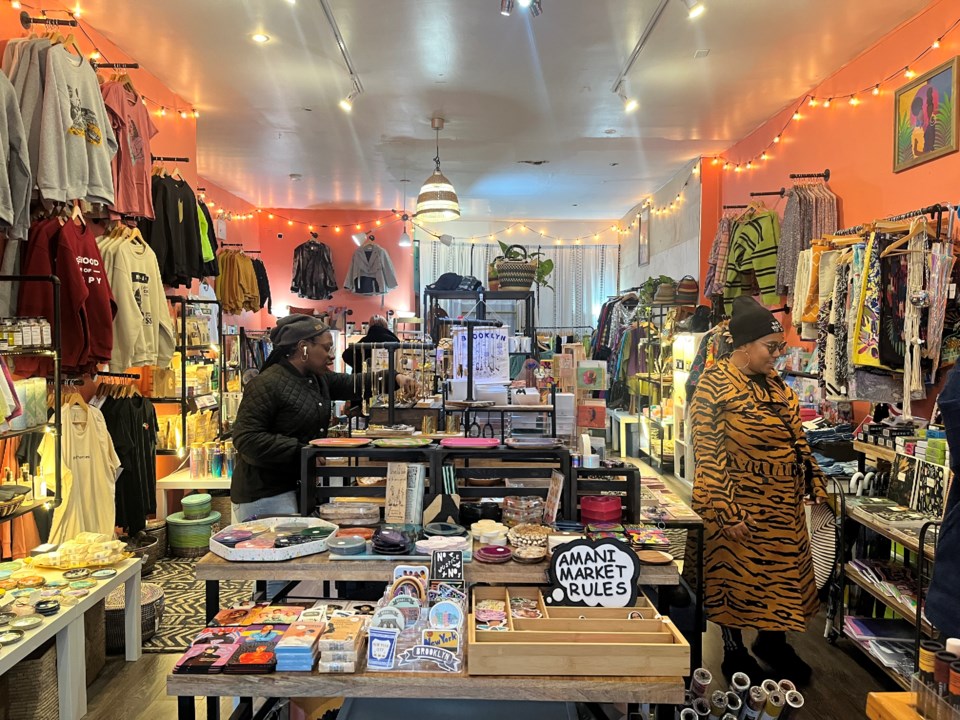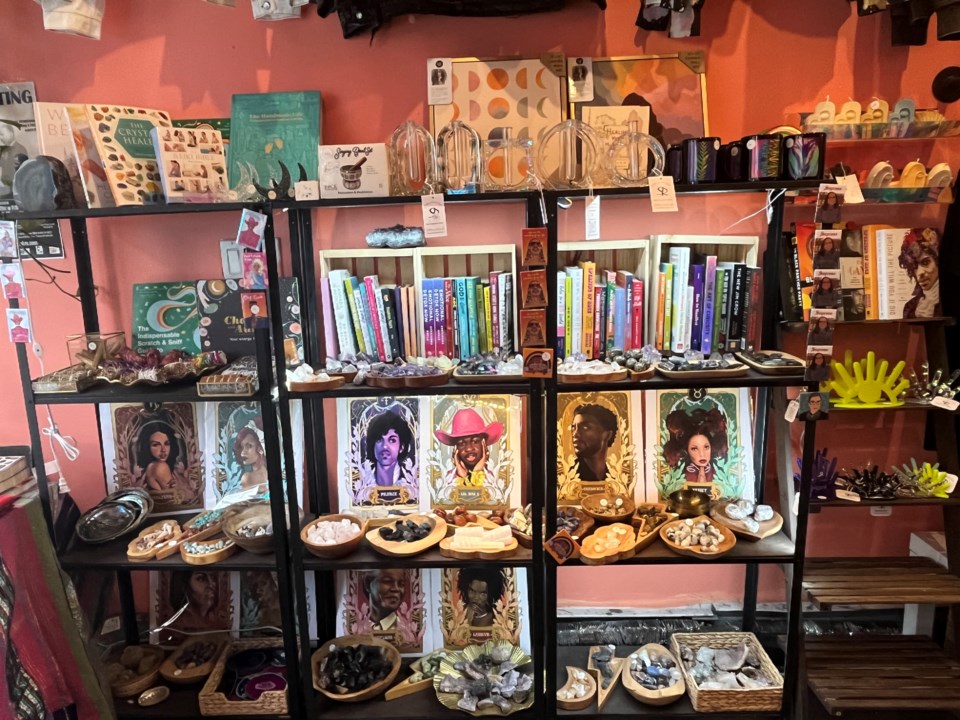Inclusiveness and representation are the purpose and selling points of entrepreneur Nicole Mebane's Franklin Avenue lifestyle boutique, Amani Market.
Amani, which means peace in Swahili, is home to over 40 Black-owned brands such as Team Jemini and Aqua Lime Skin Care, offering everything from novelty items to home goods.
After years of seeing the lack of diversity in the pop-up space, Mebane decided to cultivate her own community of merchants of color.
“There tends to be this ill perception that sometimes Black-made goods aren’t on the same level quality-wise,” she said. “I wanted to combat that by creating spaces that amplified the reach of Black-owned businesses and host pop-ups where they can thrive.”
A jar labeled ‘Regular Ass Candle’ sits among the shelves of wellness products made by women and LGBTQ-owned businesses. Mebane said Amani Market strives to be a fun, unique shopping experience, which is especially fitting for the bold and fabulous longtime Brooklyn resident.
When her store launched in February 2021, Mebane said people expressed concerns to her about how the shop would fare in the pandemic since many people were flocking to online-only shopping.
“I had to trust my gut and believe it was the right time to open after we all experienced this trauma and was starved for in-person human interaction.”
Trusting her entrepreneurial sixth sense has been a lifelong practice for Mebane, who launched her first business, Busy Baker at 11 years old, growing up in Maryland.
“My parents encouraged me to go out there and make money to buy a dog, so I started a baked goods business to save up money.”
Three decades later, that inner voice called her to Franklin Avenue’s storefronts, years before she had a retail business plan of her own.
“Around 2018, I was visiting Brooklyn Suya, another business on this strip and was telling a friend I would love to own a business here — I just loved the energy.”
The dream couldn’t be further from reality at a time when the jewelry designer was juggling pop-up shops and bartending gigs to make ends meet.
“I was willing to go for broke to build my business,” she said, “even renting out my place on Airbnb and crashing with friends and family for extended periods of time.”
After six years of pop-ups, a global pandemic and a drained savings account, she sought capital funding.
Mebane, like many other minority entrepreneurs, was considered “too risky” for most bank lenders, she said. Black entrepreneurs are denied loans at nearly twice the rate of white business owners, according to a study by the Joint Center for Political and Economic Studies.
Mebane secured funding through The Accion Opportunity Fund Small Business Loan Program, an initiative designed to bridge the equity gap in small business funding.
She tapped into her connections in the pop-up space and market research on popular products that are a hit with local consumers.
“We have curated a diverse and broad selection of brands that’s grown from mostly apparel and jewelry to now offering skin care and home goods, stationary, crystals and vintage wear,” Mebane said.
The front display in the store alone features over eight Black-owned brands and reflects the cultural melting pot of Brooklyn, a place Mebane calls “the creative epicenter of the universe.”
“The Amani Market customer is eclectic, fashionable, aren’t afraid of bold colors and patterns, love to shop small and local and be involved in their community,” she said.
She is already planning to expand to other locations and open a dedicated resource center for entrepreneurs. Check the shop's Instagram account for updates.








